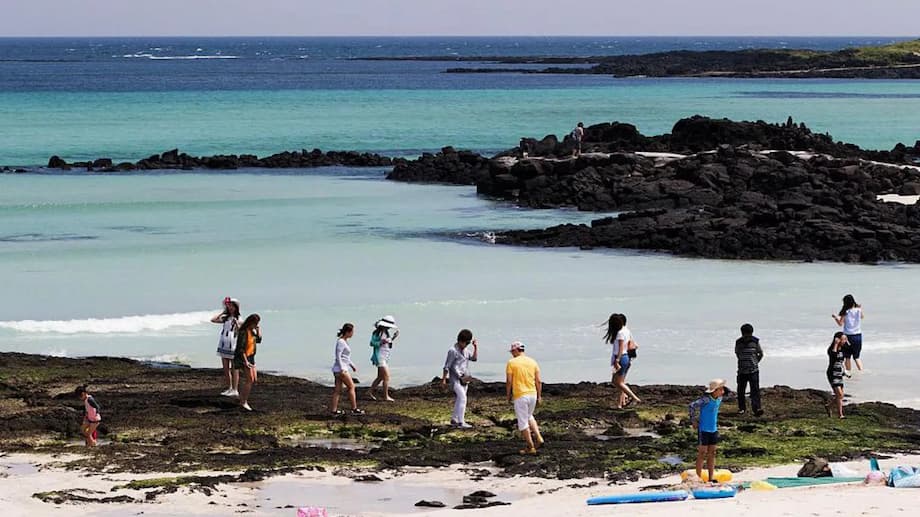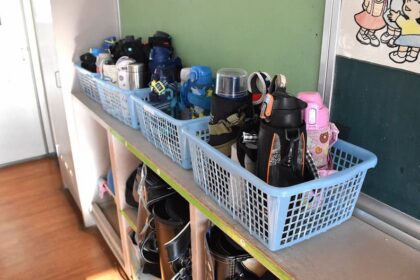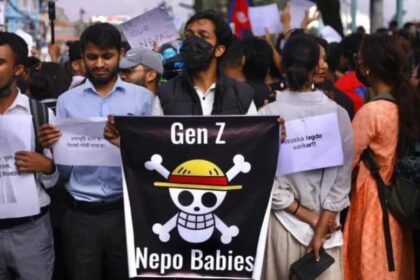Jeju Island Responds to Tourist Misconduct With New Behaviour Guidelines
Jeju Island, South Korea’s premier holiday destination, has taken an unprecedented step to address rising concerns over tourist misbehaviour and the strain of overtourism. For the first time, local police have issued a multilingual etiquette guide for foreign visitors, warning that inappropriate conduct could result in fines. This move comes as Jeju experiences a record influx of tourists, with over seven million arrivals so far in 2025 alone, and mounting complaints from residents about disruptive behaviour.
The new guidelines, printed in Korean, English, and Chinese, are being distributed by police officers during patrols at key tourist hotspots. The initiative aims to bridge cultural and language gaps, ensuring that visitors understand local customs, laws, and the expectations of respectful conduct while on the island.
What Prompted the New Guidelines?
Jeju’s volcanic landscapes, pristine beaches, and unique cultural heritage have long made it a magnet for both domestic and international tourists. However, the post-pandemic tourism rebound has brought challenges. Residents have reported a surge in incidents such as littering, public drunkenness, smoking in prohibited areas, and even cases of children defecating on the streets. These behaviours have sparked frustration and concern among locals, who worry about the impact on community life and the island’s environment.
According to Jeju Police Agency chief Kim Su-young, the guide was developed to prevent misunderstandings due to language and cultural differences and to improve foreigners’ understanding of Korean culture and laws. The police hope that clear communication will foster mutual respect and reduce the frequency of minor offences.
In a notable example of community involvement, six pupils from Pyoseon Elementary School submitted a proposal titled “Solutions to the Etiquette Problems of Foreign Tourists” to the Jeju Special Self-Governing Province website, urging better ways to address tourist misconduct and highlighting the lack of clear reporting channels for inappropriate behaviour.
What Do the Guidelines Cover?
The etiquette guide lists a range of minor offences that are now punishable by fines if repeated. These include:
- Littering
- Smoking or vaping in prohibited areas
- Jaywalking
- Drunk and disorderly behaviour
- Running away from restaurants without paying (dine-and-dash)
- Urinating or defecating in public
- Using fake identification
- Trespassing or breaking into empty houses
- Graffiti and damaging nature
- Disturbing the peace
- Carrying concealed weapons
First-time violators typically receive a warning, but repeat offenders can face fines of up to 200,000 Korean won (about $143 or £106). Police officers carry the guides and hand them out on the spot when they witness minor infractions. For more serious offences, immediate legal action is taken.
Between March and June, as part of a special campaign, the Jeju Provincial Police Agency recorded over 4,800 cases of misdemeanour by international tourists. These ranged from smoking on buses and tossing cigarette butts onto the street to public urination near popular beaches.
How Are the Guidelines Enforced?
Enforcement focuses on education and prevention. Officers are instructed to issue the etiquette notice for minor violations, reserving fines for repeat or egregious offenders. The approach is designed to avoid unnecessary confrontation while still maintaining public order. According to an official at the Jeju Provincial Police Agency,
“Serious offences are dealt with immediately, but for minor ones, we usually issue the notice instead of stricter action.”
In one recent enforcement effort, police caught nine jaywalkers—mostly tourists—within an hour and issued on-the-spot fines, demonstrating the seriousness with which the new rules are being applied.
Why Is Overtourism a Growing Problem?
Jeju’s situation reflects a broader global trend. According to the United Nations World Tourism Organization, international tourism rebounded to nearly pre-pandemic levels in 2024, with 1.4 billion tourists travelling worldwide. This surge has led to overcrowding and social tensions in many popular destinations, from Jeju to European cities like Barcelona and Lisbon.
Overtourism occurs when the number of visitors exceeds a destination’s capacity to manage them sustainably, resulting in environmental degradation, rising living costs, and a diminished quality of life for residents. In Jeju, nearly 70% of foreign visitors are from China, and tourism injected a record 9.26 trillion won into the local economy in 2024. While this economic boost is significant, it also brings challenges such as increased waste, pressure on infrastructure, and cultural friction.
Other destinations in Asia and beyond are taking similar measures. For example, a Japanese town recently blocked a famous roadside view of Mount Fuji to deter crowds seeking selfies, and several European cities have cracked down on illegal short-term rentals to protect local housing markets.
How Are Residents and Authorities Reacting?
Local sentiment in Jeju is a mix of pride in the island’s global appeal and concern over the social and environmental costs of mass tourism. Residents have voiced frustration over the loss of public decency and the strain on community resources. The new guidelines are seen as a necessary step to restore balance and protect the island’s unique character.
Authorities emphasize that the etiquette guide is not meant to discourage tourism but to promote sustainable and respectful travel. The campaign encourages visitors to respect local customs, stay on designated paths, and minimize their impact on the environment. Police chief Kim Su-young explained,
“The aim is to prevent misunderstandings due to language and cultural differences and improve foreigners’ understanding of Korean culture and laws.”
Jeju’s approach is being watched closely by other destinations grappling with overtourism. By prioritizing early education and clear communication, the island hopes to set a positive example for managing tourism growth while safeguarding the well-being of residents and the preservation of local culture.
What Are the Broader Implications for Global Tourism?
Jeju’s new guidelines highlight a growing recognition among tourism hotspots that unchecked visitor numbers can threaten the very qualities that make these places attractive. The move toward multilingual, clearly communicated codes of conduct reflects an understanding that many incidents stem from cultural misunderstandings rather than intentional disrespect.
Globally, destinations are experimenting with a range of strategies to manage overtourism, including:
- Limiting the number of visitors to sensitive sites
- Implementing stricter regulations on short-term rentals
- Increasing fines for disruptive behaviour
- Investing in public education campaigns
- Encouraging off-peak travel and alternative destinations
Jeju’s experience suggests that early intervention and community involvement—such as the proposal from local schoolchildren—can play a key role in shaping effective policies. The island’s focus on education over punishment for first-time minor offences is designed to foster goodwill and long-term behavioural change among visitors.
In Summary
- Jeju Island has issued South Korea’s first multilingual etiquette guide for tourists, responding to rising complaints about misbehaviour and overtourism.
- The guidelines, available in Korean, English, and Chinese, outline minor offences such as littering, jaywalking, and public drunkenness, with fines up to 200,000 won for repeat offenders.
- Police officers distribute the guides during patrols, focusing on education and prevention rather than immediate punishment for minor infractions.
- Over seven million tourists have visited Jeju in 2025, with nearly 70% of foreign visitors coming from China.
- The initiative aims to bridge cultural and language gaps, protect local customs, and promote sustainable tourism.
- Jeju’s approach reflects a global trend as destinations worldwide seek to balance tourism growth with the well-being of residents and preservation of local culture.












